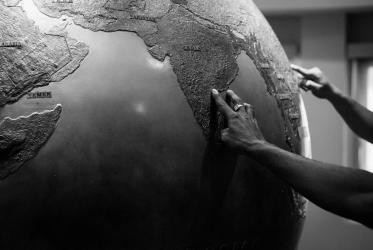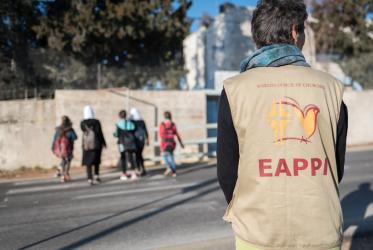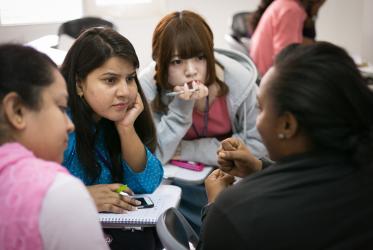Displaying 1 - 20 of 21
Dr Saïd Ailabouni: God is on the side of rejected, oppressed, occupied
12 September 2019
Peacemakers at work in Sri Lanka
29 April 2019
Shabbat dinner ‘helps humanize two sides of the story’
27 March 2019
Fr Alexi - a peacemaker in Syria
21 December 2018
A moment in ‘Time’: an interreligious vision in Erlangen
20 December 2018
G20 summit: call to pray for peace in Hamburg
07 July 2017
WCC gravely concerned over Israel’s travel ban
09 March 2017
WCC urges responsibility for and support to the refugees in Europe
04 September 2015
Assembly renews churches’ commitment towards justice and peace
08 November 2013













